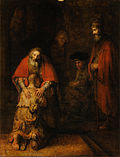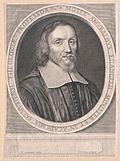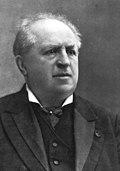Reformed churches
The Reformed churches are a group of Christian Protestant denominations that are historically related by a doctrine that is identical or similar to Calvinism. It developed in the Swiss Reformation led by Huldrych Zwingli and John Calvin, but soon afterwards appeared in nations throughout Western Europe. Each nation in which the Reformed movement was originally established had its own church government. Several of these local churches have expanded to worldwide denominations and most have experienced schisms into multiple denominations.
History
The first Reformed Churches were established in Europe in the 1500s, in the wake of the Protestant Reformation.
Form of doctrine
Reformed doctrine is expressed in various texts]. Some of them are used by many denominations. Different denominations use different confessions, usually based on historical reasons. Some of the confessions still commonly in use are (with year of writing):
- French Confession (1559),
- Scots Confession (1560),
- Three Forms of Unity
- Heidelberg Catechism (1563),
- Belgic Confession (1566),
- Canons of Dordrecht (1619),
- Second Helvetic Confession (1566)
- Westminster Standards
- Westminster Confession of Faith (1646)
- Westminster Shorter Catechism (1649)
- Westminster Larger Catechism (1649)
- Baptist
Form of governance
Reformed churches have two main forms of ecclesiastical polity:
- Presbyterian polity or Synodal government - rule by assemblies of ordained officers.
- Congregationalist polity, e.g. Congregational churches
Reformed Churches Media
Calvin preached at St. Pierre Cathedral in Geneva.
Early Calvinism was known for simple, unadorned churches as depicted in this 1661 portrait of the interior of the Oude Kerk, Amsterdam.
The seal of the Presbyterian Church in the United States of America, an early American Presbyterian church founded in 1789
The Shield of the Trinity diagrams the classic doctrine of the Trinity.
The Parable of the Prodigal Son, depicted in a portrait by Rembrandt, illustrates forgiveness.
The Directory for Public Worship described what should (and should not) occur in worship.
Moses Amyraut formulated Amyraldism, a modified Calvinist theology regarding the nature of Jesus' atonement.
Dutch prime minister Abraham Kuyper initiated Neo-Calvinism.
Other websites
- World Communion of Reformed Churches Archived 2016-08-24 at the Wayback Machine
- * World list of Reformed Churches Archived 2015-12-30 at the Wayback Machine
- Alliance of Confessing Evangelicals
- Leben, a journal of Reformed Life
- Reformed Online Archived 2008-05-09 at the Wayback Machine - Comprehensive resource







